“A utilização de rastreamento dos olhos está em constante desenvolvimento, e há uma grande quantidade de pesquisa que está sendo realizada em ADHD, ASD / Autismo e outras deficiências neurológicas.” – Fredrik Thomée
A dislexia é causada por uma fiação diferente do nosso cérebro. Enquanto ele não tem nenhuma relação com a inteligência (Thomas Edison, Steven Spielberg, Pablo Picasso, Albert Einstein e Charles Schwab eram todos disléxico), it can make reading and early learning more difficult. Tantas como 10 a 15 por cento das crianças em idade escolar são disléxicos, e da Associação Internacional de Dislexia estima que existam 1 bilhão de pessoas com dislexia em todo o mundo. Nos Estados Unidos sozinho, há algumas estimativas que afirmam que mais de 40 milhões de adultos americanos têm a doença, mas apenas a cerca de 2 milhões de conhecê-lo.
As crianças diagnosticadas com dislexia cedo têm mais tempo para obter as intervenções que necessitam para florescer na aprendizagem. Como pode AI perturbar esse problema para que os educadores e os pais podem ajudar essas crianças desde cedo?
A ferramenta de avaliação de leitura, Lexplore, afirma que tem uma solução inovadora (usando os movimentos do olho e AI) que permite que educadores para ver como uma criança está lendo. Como é que esta tecnologia mudando vidas jovens de hoje e como ela irá beneficiar os alunos com dislexia nos próximos anos?
A Pesquisa Global para a Educação Fredrik acolheu Thomée, o fundador da Lexplore, para falar sobre como a sua tecnologia está perturbando dislexia.
“desafios Quando uma criança tem de aprendizagem, the child has to invent new ways of understanding the world and communicating.” – Fredrik Thomée
Fredrik, existem muitas ferramentas tecnológicas nova de reconhecimento de voz – Grammarly, Speller, ClaroPDF, LearningAlly, co:Escritor – which level the playing field for kids and adults with learning disabilities. Do you think being dyslexic won’t handicap learners as much in years ahead?
Estas novas ferramentas, muitos dos quais estão agora livres (isto é. Aprender Ferramentas da Microsoft) são uma grande promessa para crianças e adultos que lutam com a palavra impressa. It is exciting to live during a time when all of us can gain access to text and can write effectively in whatever way works best for each individual. Enquanto dislexia ainda vai influenciar a forma como a criança aprende a ler e escrever, these new technologies will provide a greater variety of ways to communicate – which is great for us all.
Tom Cruise, Pablo Picasso, Steven Spielberg, Salma Hayek, Whoopi Goldberg, and many other celebrities struggled with reading difficulties. Dyslexia seems to be very common amongst successful people who are also considered very “criador”. Do you have any thoughts on that?
Diz-se que a necessidade é a mãe da invenção. Quando uma criança tem problemas de aprendizagem, the child has to invent new ways of understanding the world and communicating. My guess is that this contributes to a more creative approach to life in general.
“It is exciting to live during a time when all of us can gain access to text and can write effectively in whatever way works best for each individual.” – Fredrik Thomée
Does Lexplore require specific data analytics background to understand the results? How user-friendly is Lexplore? How does it help educators make the most of the results?
Lexplore foi criado para educadores. It provides information to teachers and school leaders about students’ reading levels and makes recommendations for reading instruction. Você pode ver as informações sobre pupila, classe, níveis escolares e distritais. It also provides a way to visualize the cognitive process that is happening when a child reads. Professores e pais relatam isso os ajuda a compreender realmente lutas da criança com a leitura. Teachers tell us that Lexplore is really fast, permitindo-lhes avaliar cada criança em apenas alguns minutos. They also tell us they appreciate its objectivity – there’s really no subjectivity in this test. That’s quite different from many other tools they currently use.
Você disse que Lexplore é uma ferramenta de triagem, not a diagnostic tool. Would it be apt to call Lexplore an X-ray for Dyslexia?
We say that Lexplore provides “a clear view of reading.” It allows us to truly see how the child is reading and how the struggles of dyslexia impact the reading process. Desde que nós usamos os dados do olhar olho, a informação não é tendencioso de forma alguma e é por isso que ele realmente mostra como você ler.
Como você descreveria os resultados do estudo de caso Galloway Escola? What did you learn about applying Lexplore to other schools?
A nossa experiência na Escola Galloway ajudou a validar a nossa versão atual da solução. We now provide an overall reading assessment that includes comprehension and recommendations for instruction. Os professores podem compartilhar o portal com os pais, complete with visualizations of the cognitive process, so all can get a clear view of a child’s reading abilities and struggles.
“Estamos nos estágios embrionários do que inteligência artificial é capaz de fazer.” – Fredrik Thomée
Você oferece três modelos: a white glove package where company reps come to the school to conduct screenings; an option where schools purchase the hardware and software along with some support; and a do-it-yourself route that includes only the equipment. Está exibindo algo que deve ser feito apenas nas escolas?
We are finding that most schools want us to come and train their educators to use the solution so they can complete assessments on students whenever it makes the most sense for them. Geralmente, schools will assess all students in grades 1-4 once a year, e em seguida, realizar o progresso monitorando várias vezes ao longo do ano. This allows them to deploy the right resources at the time for each student. After-school and tutoring organizations also use our solution in the same way.
Qual é o roteiro para escalar Lexplore? What are the biggest challenges you face?
Estamos nos estágios embrionários do que a inteligência artificial é capaz de fazer. There are many different areas where we see a great deal of potential to develop the analysis further in terms of predictions, indicadores, línguas, idade, coordenação com outros dados, etc. Imagine having at your disposal a 10-year longitudinal study on the reading development in your district or school where you can analyze initiatives, intervenções e métodos de ensino, as well as compare data and results with other districts, states and countries to find positive examples of achievement. Data-driven decision-making promotes a successful and effective school that addresses the needs of all children and gives them access to the conditions needed to develop to their full potential.
We are excited about advances in eye-tracking technology and look forward to a time when eye-trackers come standard with every computer just as web cams do now. Não só isso vai nos ajudar a dimensionar Lexplore, it will make a variety of solutions more accessible to people with physical limitations. Our vision is to have a solution that can simply be downloaded and used by anyone who needs to assess reading ability. utilização eye tracking está em constante desenvolvimento, e há uma grande quantidade de pesquisa que está sendo realizada em ADHD, ASD / autismo e outras deficiências neurológicas. This will result in many new application areas for the technology.
C. M. Rubin e Fredrik Thomée
Junte-se a mim e líderes de renome mundial, incluindo Sir Michael Barber (Reino Unido), Dr. Michael Bloco (EUA), Dr. Leon Botstein (EUA), Professor Clay Christensen (EUA), Dr. Linda, Darling-Hammond (EUA), Dr. MadhavChavan (Índia), Charles Fadel (EUA), Professor Michael Fullan (Canadá), Professor Howard Gardner (EUA), Professor Andy Hargreaves (EUA), Professor Yvonne Hellman (Holanda), Professor Kristin Helstad (Noruega), Jean Hendrickson (EUA), Professor Rose Hipkins (Nova Zelândia), Professor Cornelia Hoogland (Canadá), Honrosa Jeff Johnson (Canadá), Senhora. Chantal Kaufmann (Bélgica), Dr. EijaKauppinen (Finlândia), Secretário TapioKosunen Estado (Finlândia), Professor Dominique Lafontaine (Bélgica), Professor Hugh Lauder (Reino Unido), Senhor Ken Macdonald (Reino Unido), Professor Geoff Mestres (Austrália), Professor Barry McGaw (Austrália), Shiv Nadar (Índia), Professor R. Natarajan (Índia), Dr. PAK NG (Cingapura), Dr. Denise Papa (US), Sridhar Rajagopalan (Índia), Dr. Diane Ravitch (EUA), Richard Wilson Riley (EUA), Sir Ken Robinson (Reino Unido), Professor Pasi Sahlberg (Finlândia), Professor Manabu Sato (Japão), Andreas Schleicher (PISA, OCDE), Dr. Anthony Seldon (Reino Unido), Dr. David Shaffer (EUA), Dr. Kirsten Immersive Are (Noruega), Chanceler Stephen Spahn (EUA), Yves Theze (LyceeFrancais EUA), Professor Charles Ungerleider (Canadá), Professor Tony Wagner (EUA), Sir David Watson (Reino Unido), Professor Dylan Wiliam (Reino Unido), Dr. Mark Wormald (Reino Unido), Professor Theo Wubbels (Holanda), Professor Michael Young (Reino Unido), e Professor Minxuan Zhang (China) como eles exploram as grandes questões da educação imagem que todas as nações enfrentam hoje.
A Pesquisa Global para Educação Comunitária Página
C. M. Rubin é o autor de duas séries on-line lido pelo qual ela recebeu uma 2011 Upton Sinclair prêmio, "The Search Global pela Educação" e "Como vamos ler?"Ela também é o autor de três livros mais vendidos, Incluindo The Real Alice no País das Maravilhas, é o editor de CMRubinWorld e é um Disruptor Fundação Fellow.
Siga C. M. Rubin no Twitter: www.twitter.com/@cmrubinworld

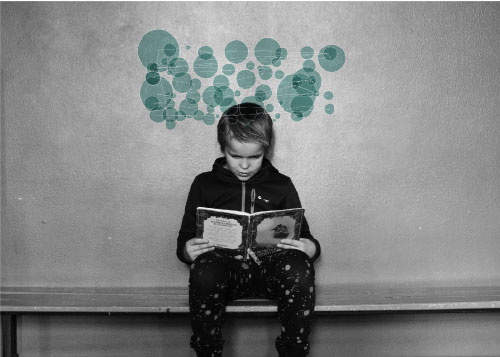
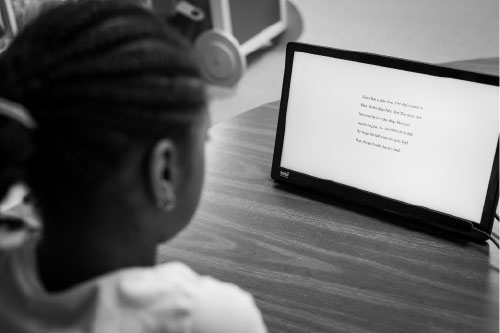
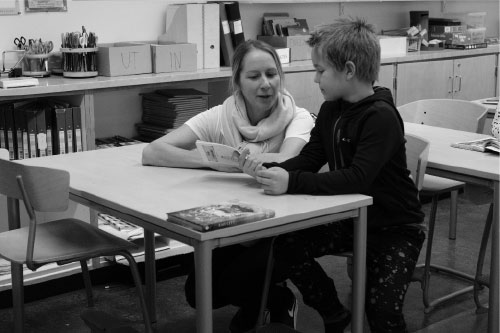

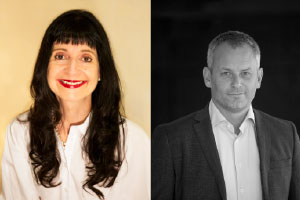
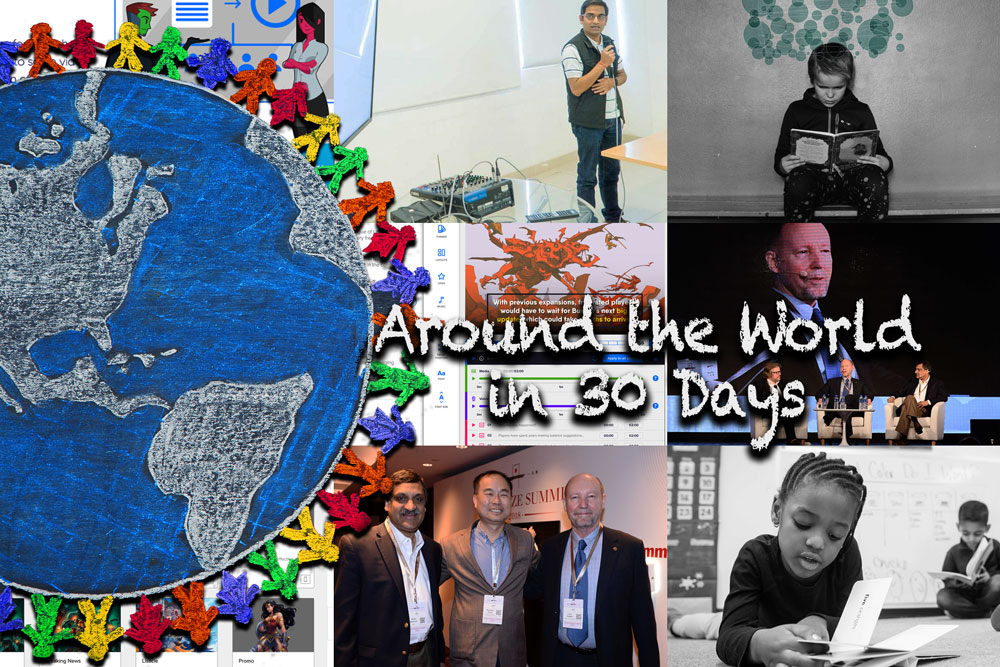
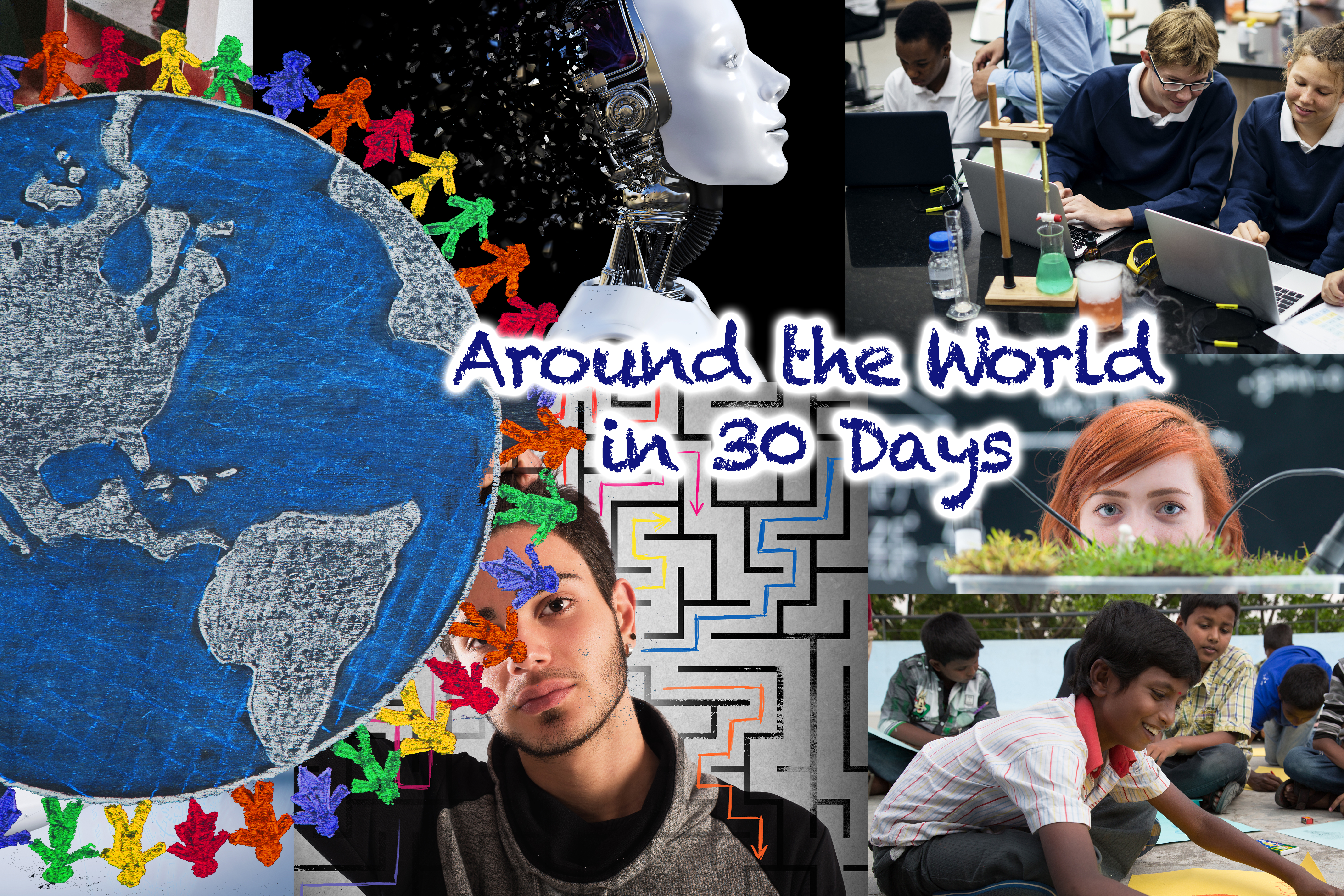
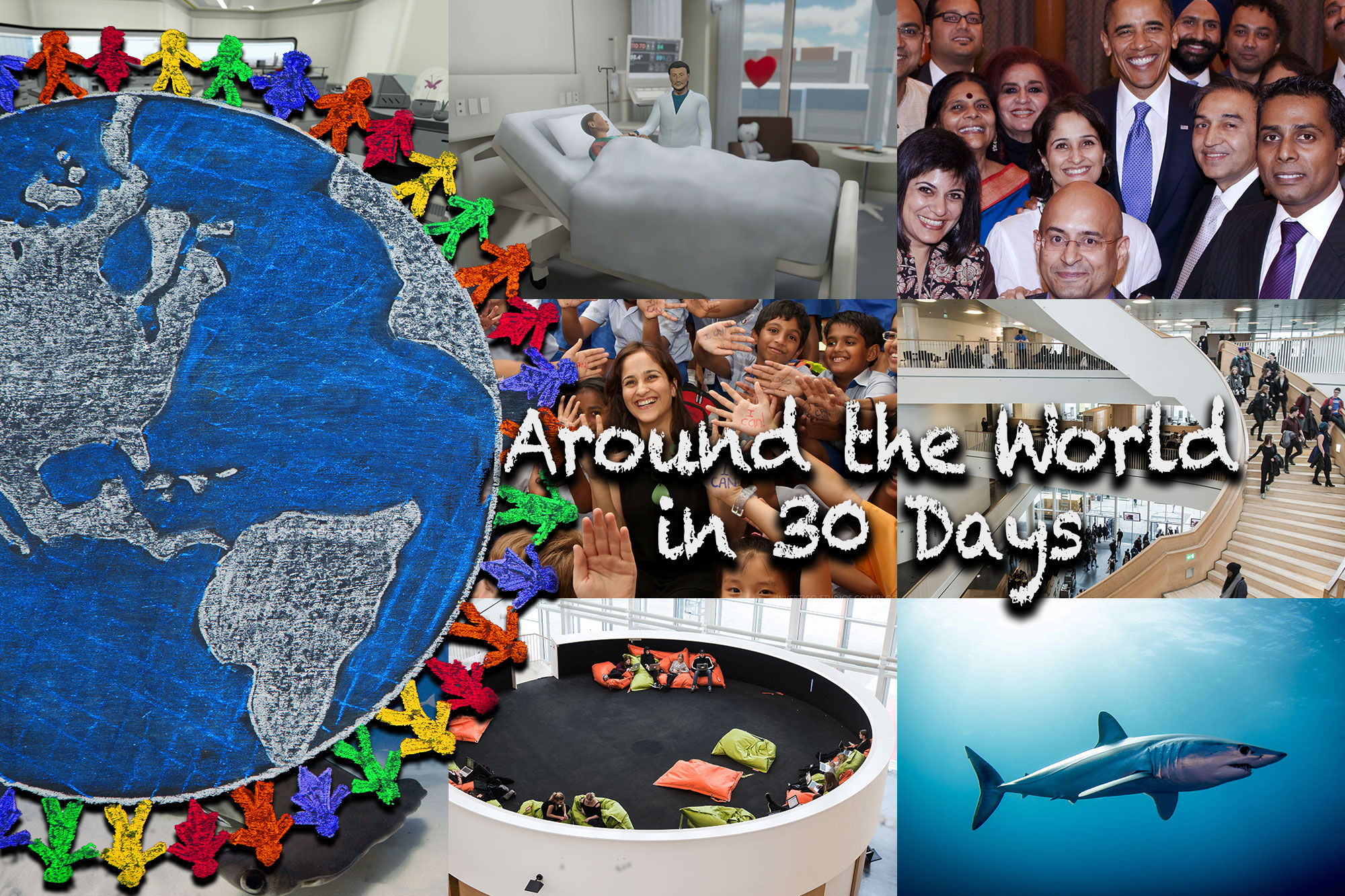

Comentários Recentes